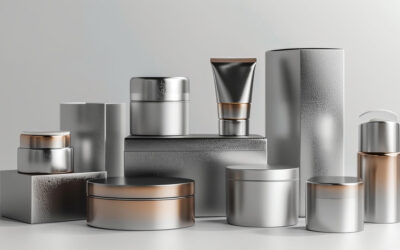The beauty industry is one of the most competitive worldwide. As it continues to evolve, it’s becoming even more important to find the perfect third-party cosmetic manufacturer for one to succeed.
With the increasing demand for good quality cosmetic products, partnering with the right people can assist a brand meet customer expectations and satisfy its bottom line. But what factors do you consider when choosing partners to work with?
1. Expertise and Experience
When looking to choose a third-party manufacturer, expertise and experience in producing quality cosmetics are key. For example, a company that has specialized in manufacturing skin care products may not be the ideal partner for that makeup line you’re envisioning.
The best thing to do is to look for one that has a record, a successful one at that, of producing high-quality cosmetics. Its portfolio should demonstrate its expertise and years of experience in the field.
2. Manufacturing Capabilities
Make sure to assess the manufacturing capabilities of any partner you want to work with. Of importance will be to check the technology, equipment, and production facilities. You want a partner that has state-of-the-art facilities and is equipped with automation capabilities.
While at it, make inquiries about their expertise in manufacturing and producing cosmetic products. The questions you ask should revolve around whether they can produce products that are similar to what you’re interested in.
3. Will They Be Able to Help You Understand the Costs You’ll Incur?
Transparency is essential in any business. Being in a position to understand what costs you’ll incur with regard to the development, formulation, manufacture, and packaging of the cosmetic products will influence your sales strategy.
It will also impact your distribution strategy. In the long term, this will result in a profitable business that will enable the brand to grow.
4. Product Quality and Safety
Safety controls are of utmost importance in the cosmetics world. Look for a partner that adheres to strict product quality control guidelines. They need to have regulatory procedures that ensure that only the best ingredients go into making the products.
Additionally, they also need to keep an accurate record of all packaging materials used for future use. These are some of the things you may need to prove the efficacy and safety of your cosmetic products.
5. Collaborative Approach
Collaboration and partnership are important in any industry. Efficient communication and partnership are needed to ensure alignment on timelines, product specifications, and expectations.
Look for manufacturers who are ready to work closely with you and your team from concept development all the way to the actual product launch. Along the way, they should be willing to provide guidance, feedback, and any support you may need with the cosmetics.
6. Are They the Right Size Partner for Current and Future Needs?
Does the partner you’re considering have a client base that has been where you’re and attained the same kind of success you crave? If they’ve a proven track record of working with other brands, this means you may achieve the same.
Inquire about any testimonials and case studies they may have from current, happy clients that they may be willing to share.
7. Customization Options
Every cosmetic line has its unique requirements. A good partner will understand this and will provide a wide range of customization options. With this, you can create products that resonate with your target market and speak to your brand.
From formulation to product design and packaging, there should be numerous options.
8. Formulation Capabilities
The cosmetic world is one of the most diverse in the world. Its diversity means there’re many formats to choose from, such as lotions, powders, pellets, gels, and liquids. For every format, a different set of skills is needed!
Now, not all beauty and cosmetic companies are the same. Some deal with certain ingredients and formats and have specific equipment for that. Check with any potential partner about any issues they may have with your preferred manufacturing method or formulation ingredients.
9. Location and Logistics
Location, location, location. Consider the location of the manufacturing facility. Ideally, it should be close to your distribution channels. This way, you get to minimize your logistical complexities, including reducing the transit times.
As you look into the location, make sure also to research their logistical capability, including but not limited to their warehousing, inventory management, and fulfillment services. That is the only way to ensure the supply chain won’t get disrupted.
10. Protection of Trademarks
The beauty world is vicious and ultra-competitive. It’s important to keep intellectual property protection in mind at all times when in search of a manufacturing partner. Choose a manufacturer who safeguards and respects proprietary formulations, patents, and trademarks.
Conclusion
Choosing the ideal partner for the production of cosmetics for third parties is an important decision that can significantly impact the success of your business. You have to consider tons of factors, including expertise, experience, product safety, and quality.
Take your time to research any potential partners and choose a producer that meets your needs and, most importantly, you’re comfortable working with. When all is said and done, your brand is your baby. Choose a partner who can help you take care of it.






